We work hard to provide the best possible care for our patients.
But sometimes…
It takes a LAW.
By using our collective political strength and contributing to our Union’s voluntary political fund, we’ve won important Nursing laws.
1999 2000 2009 2010 2011 2014 2017 2019 2020
1999 |
Nurse-to-Patient Ratios |
| Our Nurse-to-Patient ratio bill (Assembly Bill 394; Kuehl-D) was signed into law in October of 1999 by Governor Davis. To this day, California remains the only state in the country with nurse-to-patient ratio regulations for every acute care hospital unit.To learn more, visit bit.ly/121RN_RatiosHistory |
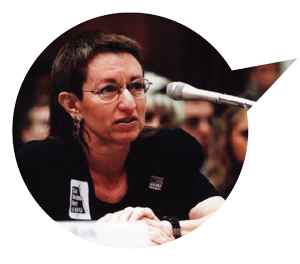 I worked at San Francisco General Hospital when the AIDS epidemic hit. We got 5B opened [the first AIDS ward in the country] and we were able to get 4-to-1 ratios. RNs in other units had as many as 10 patients each. We learned fast that you didn’t know who had AIDS, so those RNs in other units were also treating AIDS patients unawares.That’s when we decided to fight for ratios hospital-wide. We didn’t win ratios, but we got language in our contract that set our ‘hours per patient day’ throughout the hospital. That was the first contract language in the country that addressed staffing levels in every unit. By the 1990s, we were still the only hospital with that language. We decided that there needed to be legislation—not just language in one hospital’s contract—if we were going to keep this important patient and Nurse protection. We worked with SEIU’s Nurse Alliance and eventually won ratios in 1999—signed into law by Governor Pete Wilson.Lorraine Thiebaud Retired RN (Lorraine was a member of our sister local, SEIU Local 1021 in Northern California) I worked at San Francisco General Hospital when the AIDS epidemic hit. We got 5B opened [the first AIDS ward in the country] and we were able to get 4-to-1 ratios. RNs in other units had as many as 10 patients each. We learned fast that you didn’t know who had AIDS, so those RNs in other units were also treating AIDS patients unawares.That’s when we decided to fight for ratios hospital-wide. We didn’t win ratios, but we got language in our contract that set our ‘hours per patient day’ throughout the hospital. That was the first contract language in the country that addressed staffing levels in every unit. By the 1990s, we were still the only hospital with that language. We decided that there needed to be legislation—not just language in one hospital’s contract—if we were going to keep this important patient and Nurse protection. We worked with SEIU’s Nurse Alliance and eventually won ratios in 1999—signed into law by Governor Pete Wilson.Lorraine Thiebaud Retired RN (Lorraine was a member of our sister local, SEIU Local 1021 in Northern California) |
2000 |
Needle Safety Law |
| Again leading the nation, SEIU RNs in California fought for and won state legislation in 1998 (Assembly Bill 1208; Migden-D) requiring OSHA to amend its Bloodborne Pathogens Standard. This paved the way for the national regulation signed into law by President Clinton in November 2000 that requires hospitals to provide preventative and protective equipment to eliminate or minimize exposure to contaminated sharps.Visit bit.ly/NeedleLaw to relive the amazing timeline of our long fight for needle safety. |
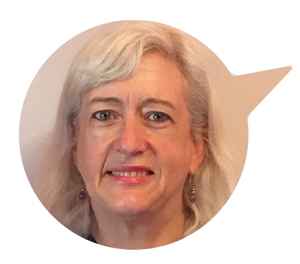 When the AIDS epidemic erupted, SEIU nurses came forward to staff the first dedicated AIDS unit in the country. We were determined to counter discrimination and stigma with loving, compassionate, and dignified care for all our patients. Our union supported the moral imperative to care for everyone and created educational materials about AIDS for members.After being infected with HIV through a needle stick, I was inspired by nurse and union activists to join the fight for safer needles. We learned that prior to AIDS, hundreds of healthcare workers had been dying yearly of occupationally-acquired Hepatitis B.* Turning fear into activism, we fought for and won state and federal laws requiring employers to provide safety devices in our workplaces. When you use a safety needle, thank your Union!Mary Magee, RN (Mary is a member of our sister local, SEIU Local 1021 in Northern California)*In 1981, it was estimated that 300 healthcare workers were dying every year of occupationally acquired Hepatitis B. This was before employers were mandated to give the Hepatitis B vaccine. Hepatitis C was still called “non-A, non-B” and there was no test for it yet, so we don’t have data on how many healthcare workers were getting it. Many people found out later when the C test was developed or their livers failed. When the AIDS epidemic erupted, SEIU nurses came forward to staff the first dedicated AIDS unit in the country. We were determined to counter discrimination and stigma with loving, compassionate, and dignified care for all our patients. Our union supported the moral imperative to care for everyone and created educational materials about AIDS for members.After being infected with HIV through a needle stick, I was inspired by nurse and union activists to join the fight for safer needles. We learned that prior to AIDS, hundreds of healthcare workers had been dying yearly of occupationally-acquired Hepatitis B.* Turning fear into activism, we fought for and won state and federal laws requiring employers to provide safety devices in our workplaces. When you use a safety needle, thank your Union!Mary Magee, RN (Mary is a member of our sister local, SEIU Local 1021 in Northern California)*In 1981, it was estimated that 300 healthcare workers were dying every year of occupationally acquired Hepatitis B. This was before employers were mandated to give the Hepatitis B vaccine. Hepatitis C was still called “non-A, non-B” and there was no test for it yet, so we don’t have data on how many healthcare workers were getting it. Many people found out later when the C test was developed or their livers failed. |
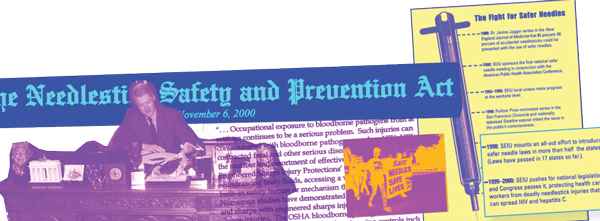
2009 |
Affordable Care Act |
| 27 million Americans gained health insurance through the ACA, with access to quality, affordable coverage. Americans with pre-existing conditions, like high blood pressure or asthma, gained protections against insurers charging them more or denying coverage altogether.To learn more, visit bit.ly/ACA_121RN |
 I strongly believe that safe, affordable, quality healthcare is a basic human right. That’s why I went to Washington, D.C., in 2009 and marched in the rain to the Russell Senate building to speak at a press conference about the need for the Affordable Care Act. I was proud to be a part of our Union’s effort to ensure its passage. And I’ve been outspoken about saving it, too, with letters and calls to our elected leaders.Gayle Batiste, RN, CNOR I strongly believe that safe, affordable, quality healthcare is a basic human right. That’s why I went to Washington, D.C., in 2009 and marched in the rain to the Russell Senate building to speak at a press conference about the need for the Affordable Care Act. I was proud to be a part of our Union’s effort to ensure its passage. And I’ve been outspoken about saving it, too, with letters and calls to our elected leaders.Gayle Batiste, RN, CNOR |
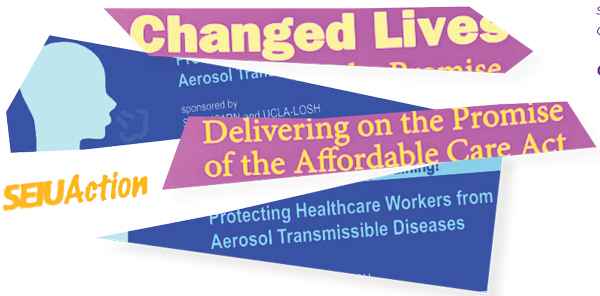
2010 |
Aerosol Transmissible Disease Standard |
| SEIU Nurses here in California won the nation’s first workplace standard designed to protect healthcare and other workers from aerosol (airborne and droplet) transmitted diseases.To learn more, visit bit.ly/121RN_ATDhistory |
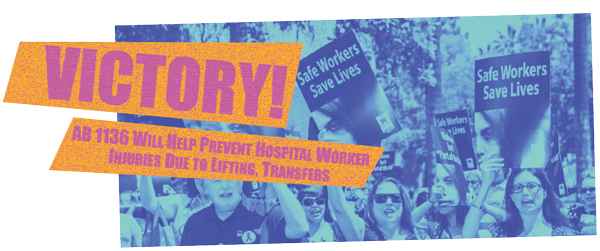
2011 |
Safe Patient Handling |
| Governor Brown signed this landmark legislation (AB 1136, Swanson-D) in 2011 and it took effect in 2014. RNs and other hospital workers fought for this new standard, which aims to limit the staggering number of workplace injuries suffered when lifting, repositioning and transferring our patients. The law requires hospitals to protect healthcare workers from back and musculoskeletal injuries, while also protecting our patients.To learn more, visit bit.ly/121RN_SafeHandling |
2014 |
Workplace Violence Protection |
| SEIU Nurses in California again led the nation with the country’s first comprehensive law to prevent workplace violence against healthcare workers (SB 1299, Padilla-D). Healthcare and social service workers are 500% more likely to experience violence on the job than any other worker in the U.S. In this campaign to win a Cal/OSHA standard, we exposed just how bad it is by sharing our own experiences.To learn more, visit bit.ly/121RN_WPVhistory |
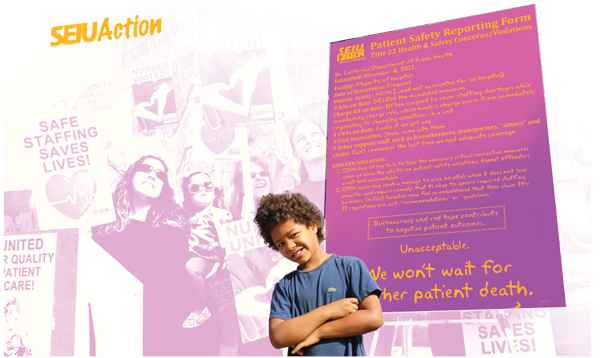
2017 |
Whistleblower Protection |
| This important law (Assembly Bill 1102, Rodriguez-D) increased fines to up to $75,000 for employers that retaliate against RNs and other healthcare professionals when we report unlawful assignments that put patient safety and our licenses at risk.To learn more, visit bit.ly/121RN_WhistleblowerProtection |
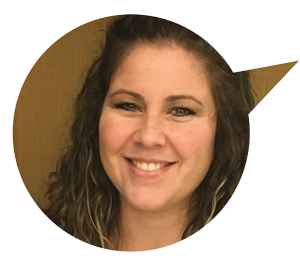 I joined our Sacramento Lobby trip that year to make sure legislators knew how important this bill was. At the time, I knew a nurse who had a full load of really ill patients. She was a new graduate and was working at capacity. Her supervisor insisted that she take another patient, which isn’t legal. She knew this would endanger her other patients. She held her ground and said ‘I don’t know what to tell you, but I can’t take another patient.’ They suspended her. Then she started speaking out and eventually left our hospital. I shared her experience with legislators in Sacramento. I could tell it had an impact.Sheryl Gimenez, RN I joined our Sacramento Lobby trip that year to make sure legislators knew how important this bill was. At the time, I knew a nurse who had a full load of really ill patients. She was a new graduate and was working at capacity. Her supervisor insisted that she take another patient, which isn’t legal. She knew this would endanger her other patients. She held her ground and said ‘I don’t know what to tell you, but I can’t take another patient.’ They suspended her. Then she started speaking out and eventually left our hospital. I shared her experience with legislators in Sacramento. I could tell it had an impact.Sheryl Gimenez, RN |

2019 |
Stop Repeat Offender Hospitals |
| Twenty years earlier, we won nurse-to-patient ratios in California. This new law (Senate Bill 227, Leyva-D) finally gave us an enforcement mechanism to discourage repeat offender hospitals that ignore those regulations.To learn more, visit bit.ly/SummarySB227 |
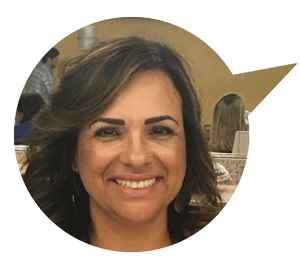 I’m an ICU nurse. Title 22 says the most I can safely care for is two patients. You give me just one more patient and instead of two safely cared for, I now have three at risk of injury or even death because I can’t care for three or more critical care patients in the same way I can care for two. I told countless legislators that our hospitals treat California’s bare-bones nurse-to-patient ratios like some kind of unattainable ideal. I told them about a patient of mine who’d come out of open-heart surgery. These patients need a lot of coaching and coaxing to get out of bed and move. It’s critical that they open their lungs to prevent pneumonia. But due to insufficient staffing levels, she ended up with pneumonia and an intestinal condition called ileus. I have no doubt that those secondary illnesses were directly caused by short staffing. It broke my heart. It was so unnecessary. And it broke legislators’ hearts, too.Kathy Montanino, RN I’m an ICU nurse. Title 22 says the most I can safely care for is two patients. You give me just one more patient and instead of two safely cared for, I now have three at risk of injury or even death because I can’t care for three or more critical care patients in the same way I can care for two. I told countless legislators that our hospitals treat California’s bare-bones nurse-to-patient ratios like some kind of unattainable ideal. I told them about a patient of mine who’d come out of open-heart surgery. These patients need a lot of coaching and coaxing to get out of bed and move. It’s critical that they open their lungs to prevent pneumonia. But due to insufficient staffing levels, she ended up with pneumonia and an intestinal condition called ileus. I have no doubt that those secondary illnesses were directly caused by short staffing. It broke my heart. It was so unnecessary. And it broke legislators’ hearts, too.Kathy Montanino, RN |
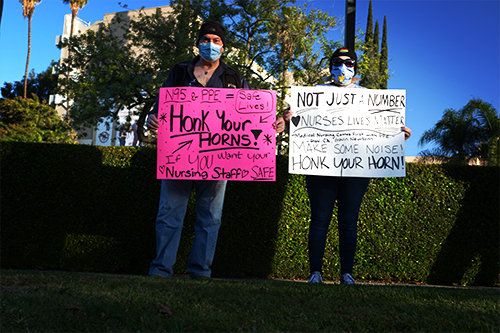
2020 |
PPE stockpile mandate |
| SB 275Senator Richard Pan (D-Sacramento) and Senator Connie M. Leyva (D-Chino) worked with us to author SB 275, designed to avoid future catastrophic shortages of PPE.To learn more, visit SB275 |
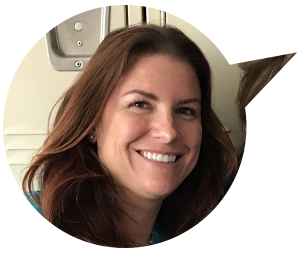 As a child I dreamed of saving lives from animals to people. Nursing was an obvious career choice for me. When the COVID crisis began, my floor became the COVID floor and our Nurses were scared. I volunteered to help train co-workers in the proper use of PAPR. The risks were clear and I wanted my colleagues to be protected. What we were not prepared for was our hospital’s failure to protect us. Inadequate PPE was one thing we never anticipated. We had to reach out to the public to get the donated PPE to protect patients and ourselves. A doctor had to raise money to buy PPE for our unit. This is why SB 275 is necessary. We need to mandate by law what our employers won’t do—protect us during this global pandemic and future pandemics.Jhonna Porter, RN As a child I dreamed of saving lives from animals to people. Nursing was an obvious career choice for me. When the COVID crisis began, my floor became the COVID floor and our Nurses were scared. I volunteered to help train co-workers in the proper use of PAPR. The risks were clear and I wanted my colleagues to be protected. What we were not prepared for was our hospital’s failure to protect us. Inadequate PPE was one thing we never anticipated. We had to reach out to the public to get the donated PPE to protect patients and ourselves. A doctor had to raise money to buy PPE for our unit. This is why SB 275 is necessary. We need to mandate by law what our employers won’t do—protect us during this global pandemic and future pandemics.Jhonna Porter, RN |
Protect workers affected by COVId-19 |
| SB 1159Early in the pandemic—at our urging—Governor Newsom signed an Executive Order to protect those of us who contract COVID-19 from unscrupulous employers who deny we caught it on the job. His temporary executive order shifted the burden of proof from the worker to the employer, who can only deny the benefits under strict, proven conditions.The executive order was retroactive from March 19, 2020—but it expired on July 5, 2020.SB 1159 corrected that. The assumption that healthcare workers contracted COVID-19 on the job is now a law.We worked with Senator Jerry Hill (D-San Mateo) to introduce this bill, which codified the Governor’s executive order. The Governor signed SB 1159 into law on September 17, and went into effect immediately, retroactive to July 6, 2020. |
To pass strong Nursing laws, we need to elect lawmakers who share our vision for safe, quality Nursing.
In today’s rapidly changing, corner-cutting world of healthcare and politics, we need leaders who will join us as a counterbalance to increasingly corporatized hospitals that focus more their financial bottom line than on patient safety.
More than ever, we need to make sure we elect leaders to local, state and national office who understand the need for good Nurse and patient legislation and policy.
Join with your colleagues and contribute to our voluntary fund for...
Nurse-Powered Politics!
Money influences politics. And nothing influences politics more than BIG, corporate money. Make no mistake, our employers are very large donors. Their contributions go to candidates whose platforms favor their unsafe-corner-cutting-for-profit agenda. As RNs and Healthcare Professionals on the front line of patient safety, we know what that agenda does to our hospitals and our patients.
It's unsafe.
As individuals, we can’t compete with BIG, corporate money. To make sure we have a voice, we contribute to our Union’s voluntary Nurse-Powered Politics Fund, also called the Committee on Political Education (COPE).
Because we pool our money together, we’ve helped to elect “Healthcare Heroes” who have championed the important Nursing laws featured here.
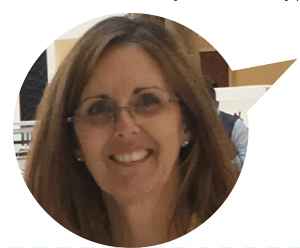 We make significant progress to improve our profession and patient safety in our Union contracts and important committees in our hospitals. But many decisions about our work are made at the state and federal government level. We need as strong a voice in these government decisions as we do in our hospitals. Standing together by getting involved in our ‘Nurse-Powered Politics’ program gives us that voice. That’s why I’ve participated in lobbying, joined our Union’s voter turnout efforts and contribute monthly to our voluntary political fund.
We make significant progress to improve our profession and patient safety in our Union contracts and important committees in our hospitals. But many decisions about our work are made at the state and federal government level. We need as strong a voice in these government decisions as we do in our hospitals. Standing together by getting involved in our ‘Nurse-Powered Politics’ program gives us that voice. That’s why I’ve participated in lobbying, joined our Union’s voter turnout efforts and contribute monthly to our voluntary political fund.
Joyce Powell, RN
In the past several years, Joyce has gone on eight lobby trips to help pass important Nurse and patient safety legislation, attended several other events where she met legislators and spoke up about important Nurse issues, wrote to and called elected leaders to advocate for strong nursing laws and has contributed to our Nurse-Powered Politics Fund (COPE) since 2013.
